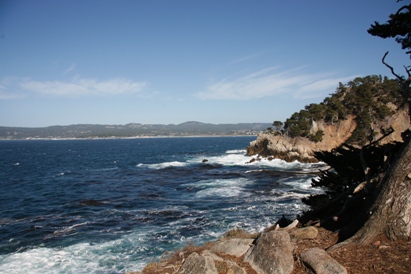Marco Rubio does NOT need to know the earth is billions of years old, especially if a liberal is arguing that he should, as Alex Knapp does in a Forbes article responding to some comments made by Rubio in a recent GQ interview. Rubio is correct to say “I think the age of the universe has zero to do with how our economy is going to grow.” Even though I hold to the Old Earth view (i.e., deep geological time), I will in no way disparage those who hold the Young Earth view (and I don’t know if Rubio does) because they interpret the Hebrew word “yom” as literal days instead of long, indeterminate periods which could be billions of years. There are many excellent, working scientists who hold to a Young Earth view, and it has not jeopardized or compromised any of their scientific endeavors. What pains me the most is because science has made such great gains, scientists of today think they know everything, even about things that they don’t know yet. The truth is no scientist can tell you how the universe began, why galaxies were formed, why solar systems were formed, and how it was possible to get just the right conditions for us to be here and for you to be reading this as a sentient human being. The mathematical odds, in this universe at least, is virtually zero. For those who don’t believe me, I was a math major and I will show you a little math here with a well-known probability example so you can wrap your head around the magnitude of the numbers I’m about to show.
Let’s look at roulette so we can grasp the probabilities. The odds of winning one game at the roulette table is 1 in 38. The probability of the ball falling into a given pocket 100 times consecutively is: 1/38 x 1/38 x 1/38 … 1/38 = 1 in 38^100 or 1 in 10^158. So we can see just how hard that would be.
Now we know that in each of our cells, we have around 25,000 protein-coding genes (though some count more), which basically map to about the same amount of proteins that do all of the work in each of our 70 trillion or so cells in our bodies. Now look at the requirements for one 150-amino acid functional protein to spontaneously form all by itself (and not within the hospitable environment of an already living cell):
- Peptide bonds: 1 in 10^45
- Left-handed amino acids: 1 in 10^45 (this is a really hard one, as there is an equal mixture in non-living things)
- Correct sequence: 1 in 10^74
- Total chance: 1 in 10^164
So the probability of this single protein spontaneously forming is lower than you winning 100 consecutive rounds of roulette.
Now a minimally complex, free living cell needs 1350 proteins, while a minimally complex parasite needs about 350 proteins (mycoplasma genitalium). But let’s just assume 250 proteins (which as far as we know is not possible and wouldn’t be free living anyway).
250 proteins spontaneously form (with no DNA directing synthesis, remember): 1 in 10^41,000
Here are the probabilistic resources we have to work with given the entire history of the universe:
- Particles in universe: 10^80
- Seconds since Big Bang: 10^16
- Possible interactions per second: 10^43
- Total possible events since beginning of universe: 10^139
So you can see that the probability of 250 proteins spontaneously forming is 1 in 10^41,000, but you only have 10^139 possible events since the beginning of the universe 13.7 billion years ago (as the smallest unit of time is the Planck time). That is precisely why I say 13.7 billion years isn’t a lot of time. It is a drop in the bucket. So next time someone says “A LOT can happen in 13.7 billion years,” this is true, but not near as much as they think. In fact, they are orders of magnitude off. It’s not even enough time to for a single protein to spontaneously form by chance, let alone 1,350 of them (the smallest free living cell) to come together in a coacervate along with the instructions in DNA and the required mechanisms needed to continually create new proteins for the operation of the cell. It’s the classic chicken and the egg problem. If you don’t have the machinery to read DNA and translate it into proteins, then you don’t have life. If you don’t have DNA then there is nothing that the machinery has to use as the template for creating the proteins needed for a cell to function. I’m talking here at the level of the single cell, not even multicellular organisms, and certainly not humans with consciousness and the ability to even ponder DNA. So my conclusion is that you need some outside force outside of our universe directing the things that have happened in our universe over the course of only 13.7 billion years. From a logical perspective, I would say this is some form of necessary being, let’s say Aristotle’s passive, far flung God somewhere in eternal repose. From a Christian perspective, I would say it is the God of the Bible. Take your pick.


Comments on this entry are closed.